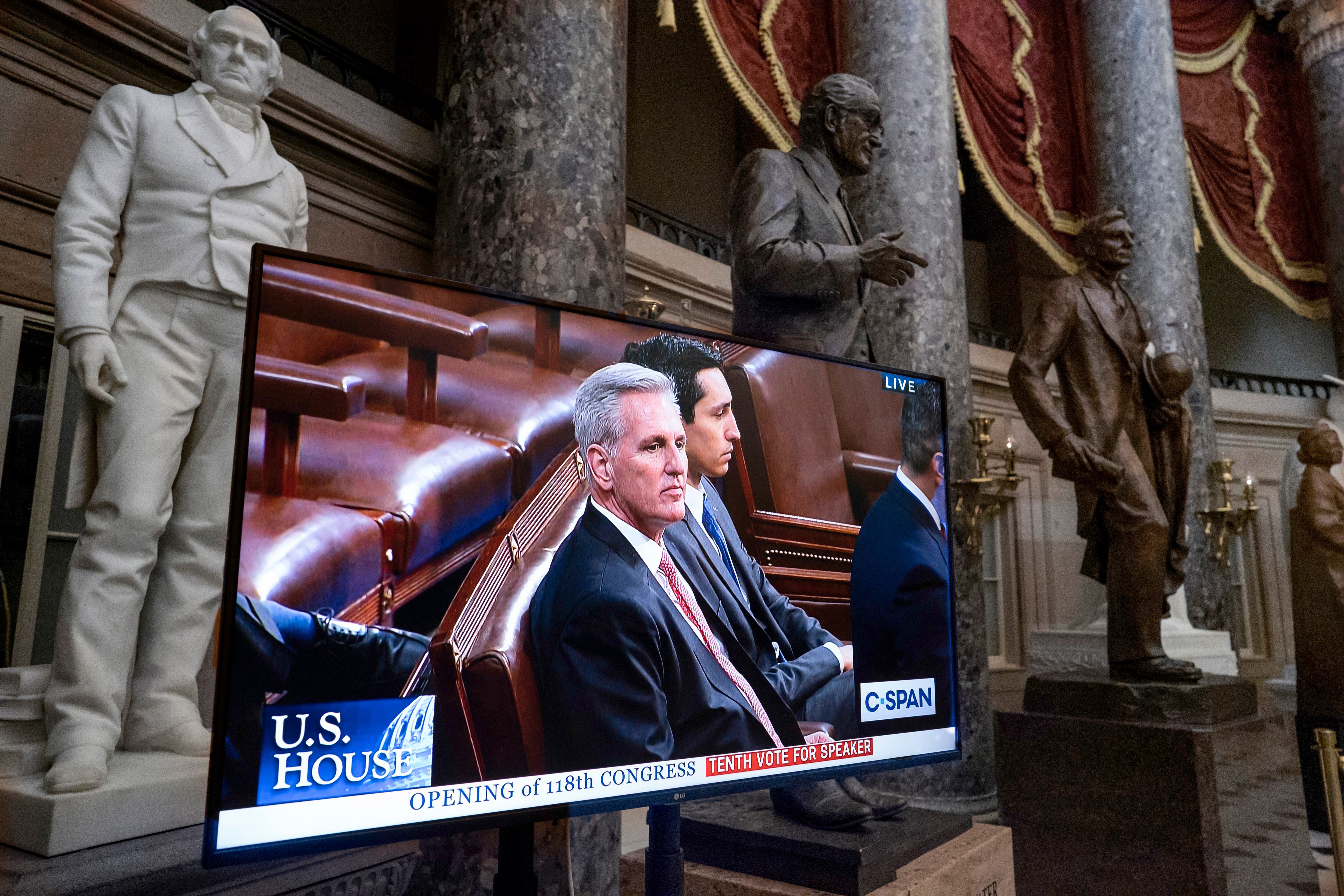Capitol Hill faced another day of votes for the next House speaker as Kevin McCarthy failed to gain support in the seventh, eighth, ninth, tenth, and eleventh rounds of voting.
Each of the Republican leader's attempts to win the speakership failed with 20 Republicans refusing to back him and another voting Present, even after the he made several concessions Wednesday evening.
McCarthy agreed to a rules change that would allow just one member to call for a vote to oust the speaker, a major concession that many defectors had asked for and initially something McCarthy had strongly opposed. He also agreed to allow more members of the Freedom Caucus to serve on the powerful House Rules committee.
The seventh and eight votes showed the reluctance of some defectors to ever support McCarthy as speaker.
“You never have to ask me again if I’m a no on Kevin McCarthy, I will never vote for Kevin McCarthy,” Rep. Bob Good, a consistent voter against McCarthy, told reporters Thursday morning. McCarthy can only afford to lose the support of four Republicans, given the slim majority they have.
But even after eight defeats, McCarthy has shown no signs of giving up the bid, in part not wanting to set a precedent that such a small faction of the party can have so much control.
The California Republican told reporters Thursday he was “confident” they would get to a solution and that lawmakers were having “good discussions,” but would not predict when he would have the votes by.









